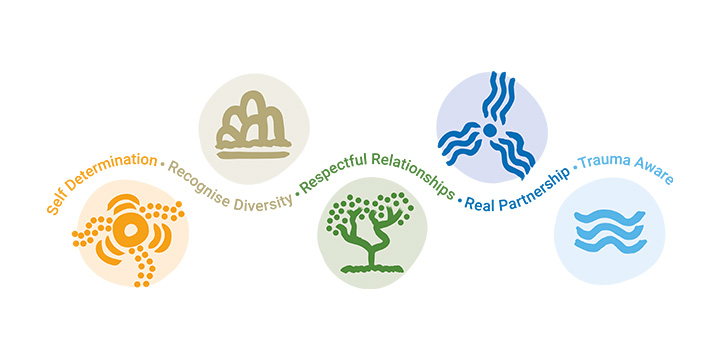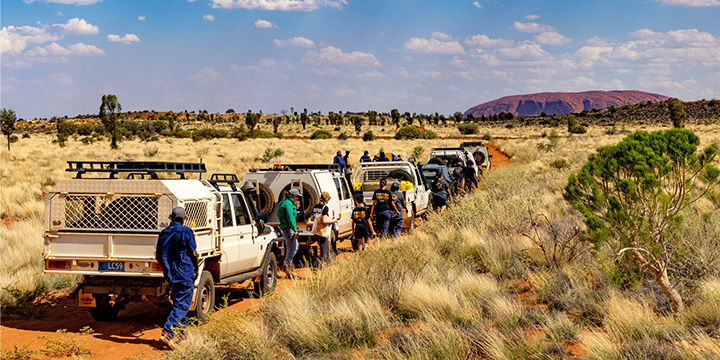Why we created First Nations Practice Principles
We have a vision of a reconciled Australia where rights and opportunities are guaranteed for all people.
Yet Australia has a long history of failed policy and practice in working to reduce disadvantage faced by First Nations peoples. Systemic racism has prevented First Nations peoples and communities from having the chance to thrive.
SVA is a non-Indigenous organisation that works closely with First Nations peoples. It’s our responsibility to hold ourselves to the highest level of accountability. We want to make sure our work does no harm while creating positive change.
Our First Nations Practice Principles guide our work with First Nations peoples, communities and organisations. We researched frameworks led by First Nations people and adapted them to define what best practice means for us. The Principles provide practical, actionable guidance to appropriately engage with First Nations communities and organisations. They also help to hold ourselves accountable.
Our First Nations Practice Principles
Support First Nations peoples’ right to control over their lives
- Be consistent with the United Nations Declaration on the Rights of Indigenous Peoples
- Support First Nations peoples to exercise the free pursuit of social, cultural and economic development
- Support autonomy over intellectual property and affairs
- Develop individual and organisational capabilities
Respect and value First Nations diverse culture and history
- Understand and value the diversity and uniqueness of First Nations peoples, cultures, histories and perspectives
- Respectfully incorporate these elements into our work
- Acknowledge that First Nations peoples are experts in their own lives: no work should be conducted about First Nations peoples, without First Nations peoples
Work respectfully and authentically with First Nations peoples
- Meaningfully engage to ensure First Nations priorities, values, perspectives and voices inform our work
- Gain free, prior and informed consent for our work
- Provide sufficient time for engagement
- Be respectful of local cultural protocols
Create reciprocal value and learning for First Nations partners
- Be accountable for the impacts our work has on First Nations peoples and communities
- Be upfront about potential benefits and unintended consequences
- Address community needs
- Recognise skills and experience
- Ensure the benefits we deliver outweigh our expectations of participation
Support strength and capability through trauma-informed practice
- Recognise the trauma experienced by First Nations peoples due to colonisation and use appropriate, trauma-informed practices
- Minimise risk of re-traumatisation of First Nations peoples through our work
- Embed cultural safety by providing positive and emotionally safe experiences
- Implement culturally-specific practices
About the artworks
We were proud to work with Saltwater People to develop the artworks for our Principles. Saltwater People is an Indigenous-led creative agency that works with First Nations artists.
Meet the artist
Richard Seden is the founding director of Saltwater People. Richard has worked as an Indigenous Health Practitioner and Wellbeing Counsellor across Central Australia, Cape York, Larrakia Country and North East Arnhem Land for over 25 years.
Richard is now focused on further developing his own cultural arts practice as a way to learn more about his ancestral connections. Richard has family connections to the Torres Strait (Kaurareg/Dhoeybaw) – and the Coen (Kaantju) and Shelbourne Bay (Wuthati) communities of Cape York.




